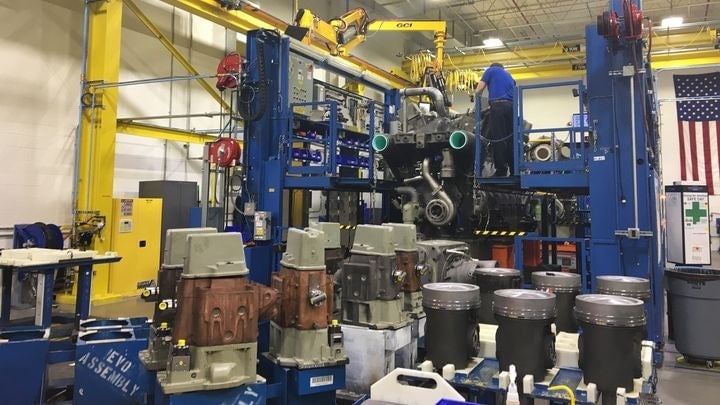General Electric CEO Jeff Immelt doesn’t think robots will kill jobs in the near future
General Electric CEO Jeff Immelt says the fear of robots taking jobs in the short term is overblown.


General Electric CEO Jeff Immelt says the fear of robots taking jobs in the short term is overblown.
“I think before we go to the phase where it’s only robots at every bench, we are going to go through a phase of smarter workers,” he told reporters on March 30.
GE has been investing heavily in futuristic manufacturing techniques. Immelt said that in Lafayette, Indiana—where GE Aviation is ramping up production for portions of its new fuel-efficient LEAP aircraft engine—”we’re going to add workers, but probably not as many as we would have twenty years ago” and each worker will be “higher value, smarter, more productive.”
Others have argued that robots and automation will have a disastrous, rather than transformative, impact on employment. Former US president Barack Obama, in his final speech, warned of “relentless pace of automation that makes a lot of good, middle-class jobs obsolete.” Elon Musk has said that a universal basic income, a system in which everyone receives a small salary, will be necessary, and Bill Gates has proposed a “robot tax” that would collect on mechanical workers.
A recent study from economists Daren Acemoglu of MIT and Pascual Restrepo of Boston University that attempted to quantify the impact on the workforce between 1990 and 2007 found “robust negative effects of robots on employment and wages.”
The focus for both the private and public sector, Immelt said, should be on training workers in new skills. The notion that robots will replace workers entirely, leading to mass unemployment, he called “more of a Silicon Valley notion than it is the real world.”
So if phase one is smart workers, what’s the next?
“I’m not that smart,” Immelt said. “I don’t know exactly how many phases that we’re going to go through. But I think we’re going to be in phase ‘smart worker’ for a fair amount of time. I really do. I think we’re better off as a country focusing on the smart-worker phase than going right to ‘robots are evil.'”